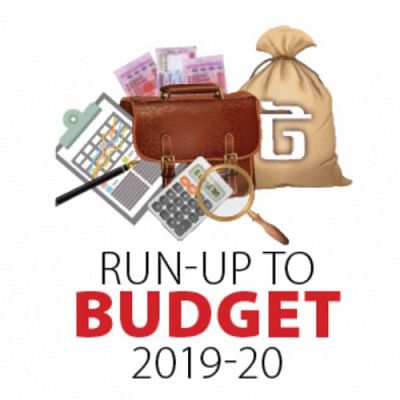Tax holiday may continue for infrastructure, industries

The government is likely to extend the tax exemption benefit on income from investment in infrastructure and industries in lagging regions for five years to encourage private investment and job creation.
The move to continue the facility up to June 2024 is being considered as the existing offer expires on June 30.
“Tax holiday benefit is likely to continue in modified form to encourage investment,” said a senior official of the finance ministry.
Private investment has been hovering between 22 and 23.4 percent of the gross domestic product (GDP) for the last several years for reasons such as inadequate infrastructure and poor investment climate.
It rose by only 1.37 percentage points since 2013-14 when it was 22.03 percent, according to Bangladesh Bureau of Statistics.
In the face of infrastructure deficit, the government in 2011 offered the tax-break for five years to 10 years to investors on condition that infrastructures and industries should be established between July 2011 and June 2019.
For physical infrastructure, namely deep seaport, elevated expressway, export processing zone, flyover, gas pipeline, hi-tech park, ICT village and LNG (liquefied natural gas) terminal, renewable energy (energy-saving bulb and solar plant), toll or bridge, the tax exemption was granted for 10 years.
Full exemption was available in the first two years and it declined from the third year to gradually phase out in the 11th year, according to income tax law.
If anyone set up 20 types of industries in areas, excluding Dhaka, Narayanganj, Gazipur, Chattogram, Rangamati, Bandarban and Khagrachhari, between July 2011 and June 2019, they got the tax-break for five years.
The government offered full immunity from income tax to investors in specific industries for the first two years. The benefit began to shrink from the third year and came to an end in the sixth year.
In order to encourage investment in the economically disadvantaged regions and reduce high concentration of factories in Dhaka and Chattogram divisions, the tax exemption was given for 10 years in Rajshahi, Khulna, Sylhet, Barishal, Rangamati, Bandarban, and Khagrachhari.
According to the National Board of Revenue (NBR), tax discount would be applied for setting up active pharmaceuticals ingredient and radio-pharmaceuticals industries, automobile manufacturing, barrier contraceptive, rubber latex, basic chemicals, basic ingredients of electronics industry, and bicycle-making factories.
Entrepreneurs setting up plants to process fruits and vegetables and make computer hardware, energy-efficient appliances, petro-chemicals, textile machinery and tyre were also offered tax-break.
Although the opportunity has been on for several years, responses from the investors to set up factories in the lagging regions and thus avail the benefit have been lukewarm, taxmen say.
Apart from extending the tax exemption period, the NBR is also considering simplifying the tax rebate benefit on investment of individual taxpayers.
Officials say the existing method of tax credit is complicated and taxpayers face difficulty to calculate the tax credit.
The NBR brought about the changes in 2016-17 and introduced three rates to calculate the rebate on the total income. The rates are 10, 12 and 15 percent, depending on the amount of the total income. The highest rate is offered to persons whose total income does not exceed Tk 10 lakh.
At present, an individual taxpayer can invest 25 percent of their total income in certain securities, including national savings certificates and deposit pension scheme and maintains life insurance policy.
However, the tax-free income limit is unlikely to change.
The government has kept the tax-free income threshold unchanged at Tk 2.50 lakh for four years since 2015-16, leading various quarters to demand an increase considering the spiral in the cost of living.


 For all latest news, follow The Daily Star's Google News channel.
For all latest news, follow The Daily Star's Google News channel. 



Comments